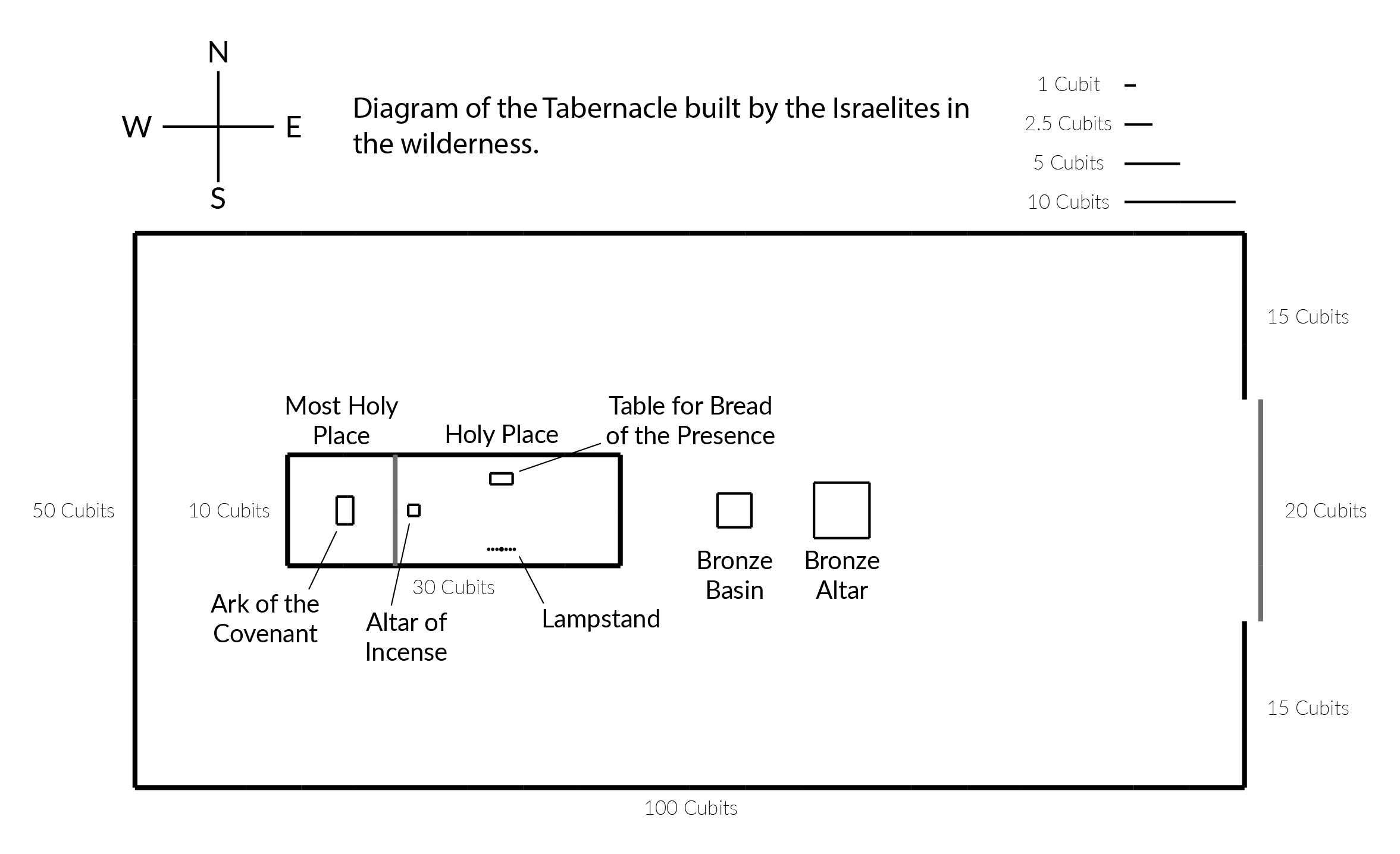Leviticus 11 Summary: A Short Breakdown in 5 Minutes
Leviticus 11 Summary - A Quick Overview
WHEN:
Leviticus picks up where Exodus left off. The children of Israel are on their way through the wilderness to the Canaan land.
According to Leviticus 8, the Tabernacle had already been erected, which would place the year at approximately 1490 B.C. (one year after the Israelites left Egypt).
DEFINITIONS:
Cloven Hoof (Split Hoof) – An animal has a cloven hoof when the hoof is divided into two distinct sections. For example, the hoof of a cow is divided, whereas the hoof of a horse is not cloven.
Chewing Cud – Animals that chew cud store food in their stomachs and later regurgitate it to chew it further. This process is also known as rumination. Examples of animals that chew cud include cows, deer, sheep, and giraffes. These animals are known as ruminants.
TABERNACLE DIAGRAM
OUTLINE:
LAWS ABOUT FOOD: CLEAN AND UNCLEAN ANIMALS (11:1-47):
The Hebrews were allowed to eat any animal that had a cloven hoof and chewed the cud.
Animals that did one but not the other were consider “unclean” and could not be eaten (camels, rock badger, hares, pigs).
Everything in the water that had fins and scales could be used for food.
Anything without fins and scale was to be considered “detestable.”
God forbid the eating of certain birds: eagles, bearded vultures, black vultures, kites, falcons, ravens, ostriches, nighthawks, sea gulls, hawks, little owls, cormorants, short-eared owls, barn owls, tawny owls, carrion vultures, storks, herons, hoopoes, and bats.
Insects with wings that walked on 4 legs were not to be eaten, except for insects with jointed legs above their feet (locust, cricket, and grasshopper).
Animals that walked on all fours on their paws were unclean.
Moles, rats, mice, great lizards, sand lizards, and chameleons were unclean.
Not only were the Israelites not to eat these animals, birds, and insects but they were forbidden from touching their carcasses.
If a person touched their carcasses, he/she would be considered “unclean” until the evening.
Additionally, anything an unclean animal’s carcass touched (wood, clothing, skin, bags, etc.) would be considered unclean until the evening and had to be washed in water.
If a carcass fell into an earthen jar or pot, the vessel was to be broken.
If a clean animal died of natural causes (not slaughtered), and it was touched, carried, or eaten, those who came into contact with it were unclean until the evening and were required to wash their clothes.
Animals that crawled on their stomachs (snakes and worms) and insects with “many legs” (caterpillar and centipede) were not to be eaten.
These laws were designed to consecrate the people of Israel and to make them a distinct people among the nations.
God commanded them saying, “You shall therefore be holy, for I am holy.”
APPLICATION:
I can’t tell you how many times I’ve heard critics of faith try to discredit Christians for not following the whole Bible because they eat pigs, shellfish, or other unclean animals.
But this is a foolish criticism, and it reveals the critic’s lack of scriptural understanding.
These rules were never meant to be applied to modern Christians, nor were they imposed on any other nation of people contemporary with the Hebrews (as far as we know).
These dietary restrictions were specifically intended for the Israelites within their unique position as God’s consecrated people.
In fact, the apostle Peter’s vision in Acts 10, makes it clear these dietary laws are no longer applicable to disciples of Jesus.
Anyone who tries to suggest Christians are hypocrites because they hold to God’s laws as described in the New Testament but ignore the laws in Leviticus, doesn’t understand the context of Leviticus and doesn’t understand the story of the Bible.
Typically, people who use this argument are just parroting something they heard from others. These types of criticisms aren’t coming from throughout evaluation of the Bible.


